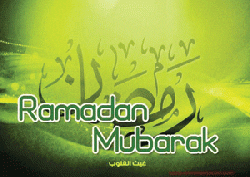Millions of Muslims around the world begin the annual observance of Ramadan as we go to press today. It behooves a newspaper with a large, English-speaking, non-Muslim readership to review the practice and meaning of this holiest of observances on the Islamic calendar.

Ramadan is considered to be the holiest month of the Islamic calendar as it commemorates Allah sending the Archangel Jibril (Gabriel) to the Prophet Mohammad the revelations of the Qur’an conveying guidance for all mankind. The actual first night of the revelations is believed to be one of the last ten nights of the month and translates as the Night of Power. The major task in Ramadan is fasting from dawn until dusk – meaning no food, no fluid, no smoking, chewing gum, sucking on candy and no sexual relations or impure thoughts.
With a few exceptions, every Muslim who is past the age of puberty and mentally and physically fit is obligated to observe the fast.
The fast starts from dawn and is begun by the Al Fajr prayer, or morning prayer. Technically dusk begins when one cannot observe the difference between a white thread and a black thread natural, outside light. The fast ends at dusk and is marked by the Al Maghrib, or sunset, prayer. Dusk is usually about a half hour before sunset. A small early morning meal called “suhoor” is usually taken to sustain one through the coming hours of fasting.
There are a few categories of people who do not have to fast.
People with psychological problems (mentally unstable), children under the age of puberty, the elderly, the sick, travellers and pregnant women or nursing mothers are all exempt. Instead, they are required to feed at least one poor person a day or pay charity money that is equivalent to feeding one, for every fast they missed.
Women on their monthly period are also exempt but must start fasting again once this is over.
Although children are not obliged to fast, many do observe the fast as an exercise.
Usually parents ease their children into the tradition by making them fast for half the day, or for as long as they can, until the child can get through the entire fasting day.
Fasting is crucial during Ramadan as it is one of the Five Pillars of the faith. It was made obligatory in Ramadan in the second year of Al Hijra.
Al Hijra, which means “the migration,” is when the Prophet Mohammad and his followers migrated from Mecca, his hometown, to Madinah to escape his tribe’s harm and torture.
Fasting is meant to humble oneself and increase moral discipline as well as to serve as a reminder of the plight of those less fortunate who live in hunger and deprivation.
It also has many health benefits as it helps the body to detoxify and speeds up the healing process as the energy usually used for digestion is diverted towards metabolism and the immune system.
Muslims try to spend more time praying, saying Dua’a (invocations), reciting the Qur’an and giving more to charity during the month, as the rewards of good deeds at this time are multiplied.
During the month, Muslims aspire to become more pious, generous and good to others while exercising self-discipline.
For this reason, Ramadan’s fast is more than just a food fast.
Free iftar tents are set up next to most mosques so that no one stays hungry when ending their fast.
Every Muslim is also required to give to charity a set amount of money called Zakat Al Fitr at the end of Ramadan. This money is meant to be used to help those less fortunate to buy new clothes and food so they can celebrate Eid.
Ramadan is all about caring, sharing, family and getting closer to Allah.
Families and friends get together over iftar and suhoor. Iftar is the meal eaten after sunset or when the Al Maghreb prayer sounds. It is the meal that ends the fast and is the main meal of the day.
Some Muslims recite Taraweeh prayers, special night prayers held after the regular night prayer. Another common ritual of Ramadan is reciting the Qur’an. In some countries, Ramadan is marked by colorful lanterns that decorate houses, streets and shopping centers.
Many Muslims also flock to Mecca for the Ramadan Umrah. Umrah is one of the two kinds of pilgrimages Muslims make, the other being Haj.
After Ramadan ends, Muslims celebrate the three day festival of Eid Al Fitr, which literally translates into “The Festival of Breaking the Fast.”
Muslims wear their best clothes, prepare food and sweets and spend these days with family and friends.
The Special Eid prayer is performed in the morning and is held in congregations in mosques or open areas. After the prayer is over, people get together in parks or at each others’ houses.
Children are usually given gifts or cash during Eid from family and friends.
Mothers often send their children with gifts of home-made sweets and platters to neighbors as part of the celebrations marking the end of Ramadan.
Ramadan is more of an observance of religious traditions than a holiday like Christmas. Saying, “Have a blessed Ramadan” is a more appropriate greeting than “Merry Ramadan.” The Arab American News wishes all our Muslim readers a blessed, fruitful Ramadan.






Leave a Reply